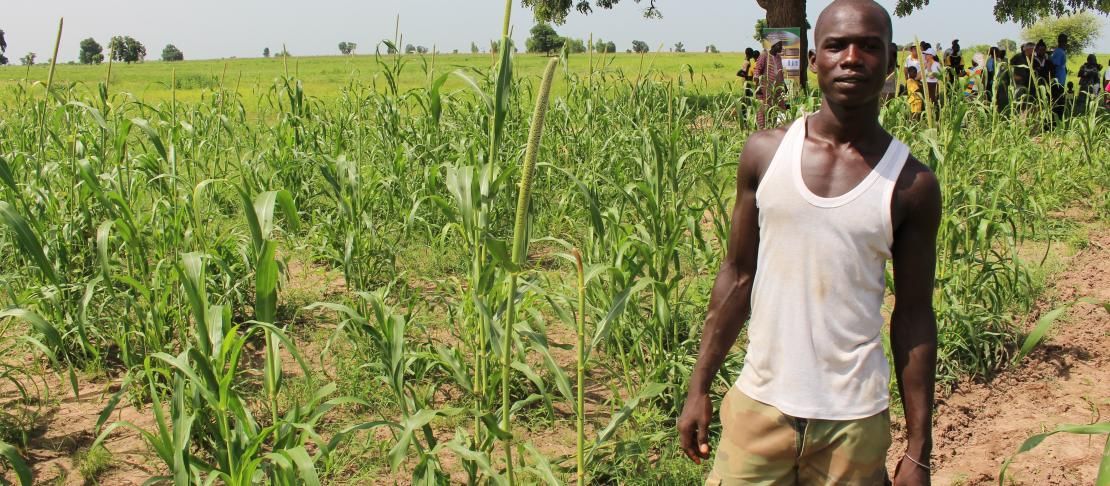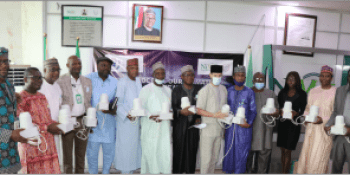Improving food security with spatial yield forecasts

Improving projections of food security remains a significant challenge in African countries, where low-input smallholder systems account for most of the agricultural production.
The International Crops Research Institute for the Semi-Arid Tropics (ICRISAT) has long been at the forefront of systems analyses and crop modeling research, from the International Benchmark Sites Network for Agro-technology Transfer (IBSNAT) in the 1980s to the recent AgMIP Project. This continued institutional commitment contributed to the emergence of a class of particularly agile models such as DSSAT and APSIM. These models are able to mimic non-linear plant growth processes and low-input cropping systems, and widely used globally.
A next logical step is the ability to reliably simulate yields over space, and use aggregated forecasts to improve food security on sub-national to national scales. That is the challenge taken up by the CCAFS-funded project called 'Capacitating African Smallholders with Climate Advisories and Insurance Development' (CASCAID). Under CASCAID, ICRISAT works with the University of Florida and the Agrhymet Regional Centre to calibrate the CCAFS Regional Agricultural Forecasting Tool (CRAFT) for yield forecasting in West Africa. From November 28 2016, a 2 week-long workshop at University of Florida brought together West African resource persons to fine-tune CRAFT for that purpose, using historical reference data from Mali’s cotton growing belt.
CRAFT is a personal computer-based decision support system for short and long-term yield forecasting and agricultural risk analysis under increasing climate variability and extreme events, as well as climate change impact studies. It is a framework for running multiple crop simulation models under a unified user interface and for spatial aggregation of the simulated results into interactive thematic maps. Stemming from earlier spatial yield prediction work by Dr. Jim Hansen (CCAFS Flagship 4 leader), CRAFT was developed in partnership with Washington State University, the University of Florida, and by the Asia Risk Center (ARC), a sister company of Risk Management Solutions Inc.
CRAFT is connected to IRI’s Climate predictability tool (CPT), and under CASCAID developed new interfacing capabilities with the SarraH model, the workhorse of regional yield prediction at the Agrhymet Regional Centre. Running on gridded data sets, CRAFT requires spatially continuous weather, soil and management inputs, and will utilize merged weather data sets developed by the National Meteorological Agency of Mali (Mali Meteo) under the ENACTS (Enhancing National Climate Services) initiative, and crop masks and crop type maps produced by ICRISAT and partners under the Sentinel-2 Agriculture project.
Pierre Sibiry Traore, CASCAID project leader, is very keen on using CRAFT as a benchmark for yield prediction in West Africa: “CRAFT not only provides an attractive software platform to investigate model complexity tradeoffs in spatial yield forecasting, it also learns from, and builds upon existing modeling skills and priorities in the region. As such it will help foster partnerships that increase the reliability and granularity of yield forecasts, and will thus help strengthen food security at coarser scales, and the delivery of farm support services into the last mile.”
9 participants took part in the training, representing ICRISAT, the Agrhymet Regional Centre, the University of Bonn, Germany, and two resource persons from University of Florida. Work on CRAFT in West Africa also contributes to AgMIP’s Coordinated Global Regional Assessments (CGRA) initiative.
Project:
Associated projects:
- Agricultural Model Inter-comparison and Improvement Project (AgMIP)
- Sentinel-2 Agriculture (Sen2agri)
Pierre Sibiri Traore is Principal Scientist at ICRISAT
and Andree Neekam is Scientific Officer at ICRISAT.



